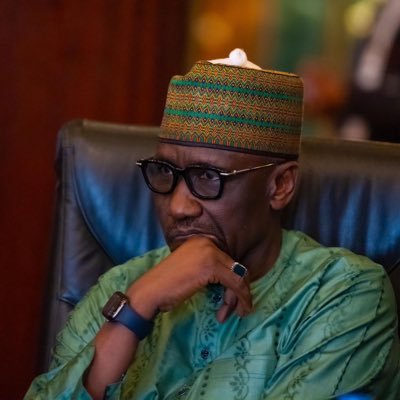Paragraph 1: The Investigation and Its Focus
Mele Kyari, the immediate past Group Managing Director (GMD) of the Nigerian National Petroleum Company Limited (NNPCL), finds himself under scrutiny by the Economic and Financial Crimes Commission (EFCC) regarding alleged financial misconduct during his tenure. Sources within the anti-graft agency have confirmed that Kyari is currently being interrogated at the EFCC headquarters in Abuja. The investigation centers on alleged financial irregularities during his time as the head of the state-owned oil company, particularly concerning transactions related to Nigeria’s struggling refineries and a substantial $7.2 billion refinery turnaround maintenance project.
Paragraph 2: Legal Developments and Asset Freeze
The investigation has already led to significant legal action. A Federal High Court in Abuja recently issued an order temporarily freezing four bank accounts linked to Kyari, pending the outcome of the EFCC’s investigations into the fraud allegations. This move underscores the seriousness of the accusations and the potential financial implications for the former NNPCL chief. The court’s decision to freeze the accounts suggests there is credible evidence requiring further investigation and potentially safeguarding assets that may be subject to recovery if wrongdoing is proven.
Paragraph 3: Kyari’s Tenure and Transformation of NNPCL
Kyari served as the GMD of NNPCL from 2019 until July 2024. His tenure coincided with a period of significant transformation for the Nigerian oil sector. One of the most notable changes was the transition of the Nigerian National Petroleum Corporation (NNPC) from a government corporation into a limited liability company (NNPCL). This restructuring was intended to improve transparency and accountability, making the company operate more like a commercially-viable entity. However, the ongoing investigation raises questions about the financial management during this transition period and whether the intended reforms were effectively implemented to safeguard against potential misconduct.
Paragraph 4: Allegations Surrounding Refinery Projects
The EFCC’s investigation is particularly focused on the management of billions of dollars allocated to the rehabilitation of Nigeria’s refineries. These refineries have long been plagued by inefficiencies and corruption, resulting in the country relying heavily on imported refined petroleum products despite being a major crude oil producer. The $7.2 billion turnaround maintenance project was intended to address these issues and revitalize the refineries, but the EFCC’s scrutiny suggests potential misappropriation or mismanagement of these funds. The investigation seeks to uncover whether the allocated resources were used effectively and if any fraudulent activities occurred during the project.
Paragraph 5: Transparency and Accountability Concerns
The investigation into Kyari’s tenure raises critical questions about transparency and accountability within the Nigerian oil industry. The alleged financial irregularities point to potential systemic weaknesses and the need for greater oversight of public funds. The case underscores the challenges Nigeria faces in managing its vast oil resources effectively and ensuring that they benefit the nation and its citizens. The outcome of the EFCC’s investigation could have significant implications for the future of the NNPCL and the broader efforts to reform the Nigerian oil sector.
Paragraph 6: Implications and Future of the Investigation
The EFCC’s investigation into Mele Kyari is a significant development in Nigeria’s ongoing fight against corruption, particularly within its crucial oil sector. The outcome of this investigation could set a precedent for future cases involving high-ranking officials and state-owned enterprises. It will be crucial to ensure a thorough and impartial investigation to determine the extent of any wrongdoing and hold those responsible accountable. The progress and findings of the investigation will be closely watched by both Nigerian citizens and international observers, as it has the potential to impact investor confidence and the country’s efforts to attract foreign investment in its oil and gas sector. The case underscores the importance of robust anti-corruption measures and the need for continuous efforts to enhance transparency and accountability within the Nigerian oil industry.














